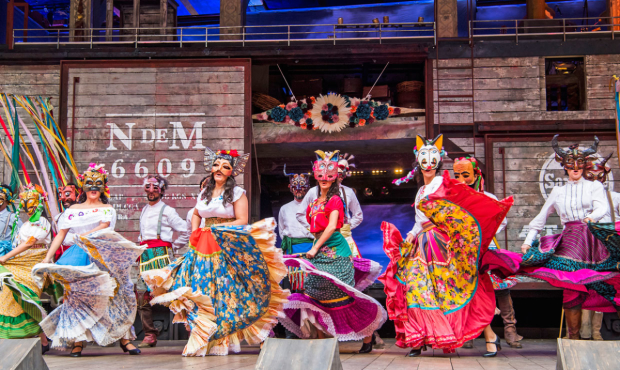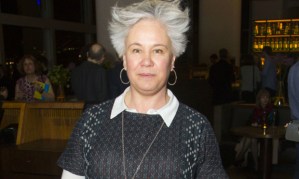Review: Much Ado About Nothing (Shakespeare’s Globe)
There are some interesting gender politics at play, but nothing excuses the countless Mexican clichés in Matthew Dunster’s production

©Tristram Kenton
Emma Rice’s Globe is living up to its name. In little over a year, it’s whisked us off to Ireland, India (ish) and the Scottish Isles – and now, for Much Ado, Mexico and its long civil war of a century ago. Matthew Dunster’s larky production might be as authentic as Old El Paso, but for all its shonky stereotypes, its setting makes some sense of love as a battleground. Don’t forget that Shakespeare’s most reluctant lovers, Beatrice and Benedick, are at "merry war."
This is a world of bandits and brothers-in-arms; a place where hombres are hombres, and women are esposas and madres – wives and mothers. An onstage shrine to the Virgin Mary reminds us that while women are worshipped, their role remains largely familial, and it’s telling that, for all the old fathers in Much Ado, mothers are entirely absent. It is as if, after marriage, they disappear. This is a man’s world, and, for both sexes, romance is something to regard with suspicion. Marcello Cruz’s Claudio is unusual in rushing headlong towards it, openly declaring his love for Anya Chalotra’s Hero from the off. Matthew Needham's Benedick and Beatriz Romilly's Beatrice are more typical. They arm themselves against affection, and steel themselves for single life.
Honour plays its part too, of course, and Dunster suggests the play’s motivating factor is wounded pride. It’s strongly implied that Benedick and Beatrice are embittered ex-lovers – "I know you of old," she says waspishly, after implying he shoots too soon – and the moment Steve John Shepherd’s Don Pedro is rejected, he fires his pistol into the air in frustration, as if to reassert his macho impenetrability. Claudio, too, spurns his bride at the altar, believing her infidelity brings shame on him. Indeed, Dunster spots a strong pattern; as Much Ado plays out, its lovers become fighters and its fighters fall in love. The same switcheroo applies to the sexes. Needham’s sharpshooting Benedick goes soppy, a soldier turned peacekeeper, while Romilly’s Beatrice bursts out of the house in a belt of bullets, intent on avenging her sister. Its villain, not Don Juan but Donna Juana, is a proper outlaw, an unloved outcast wreaking havoc.
However, though the show starts with a solider bleeding out on a stretcher, screaming in agony, there’s no real connection to the political unrest raging across Mexico. It’s elected president and his deputy had just been assassinated, a US-backed military junta installed in their place. Dunster, however, is more interested in Tex Mex tropes and trappings and, quicker than you can say 'cultural appropriaton', his actors are chewing cigars, slamming tequilas and shooting tin cans to a mariachi band score. All wear sombreros and ride in on 'horseback' (stilts and wire horse heads). Anna Fleischle's colourful, zesty design, which stalls an old cargo train onstage, is nothing if not fun. It’s also nothing like Mexico.
This is fancy dress Wild Wild West, and, oddly, it knows it. Ewan Wardrop's Dogberry isn’t a muddle police chief, but an old American moviemaker forever lost in translation who films the locals with an outsider’s eye. Flag up false representation all you like, but no amount of self-awareness excuses perpetuating those clichés. Not at a moment when Mexicans are so vilified; not as the chant of 'Build that wall' rings out across America.
Ultimately, though, every Much Ado lives and dies on its bickering sweethearts, and Needham and Romilly are better on broad comedy than on emotional nuance. Needham's gangly Benedick is an unnatural romantic, awkward and uptight, and Romilly's Beatrice brushes him off with a raspberry. They go for more gags than a ten tequila challenge, and you lose the poetry and romance of two hard hearts thawing. Without that, there’s nothing – just a Mexican mish-mash.
Much Ado About Nothing runs at Shakespeare’s Globe until 15 October.
















